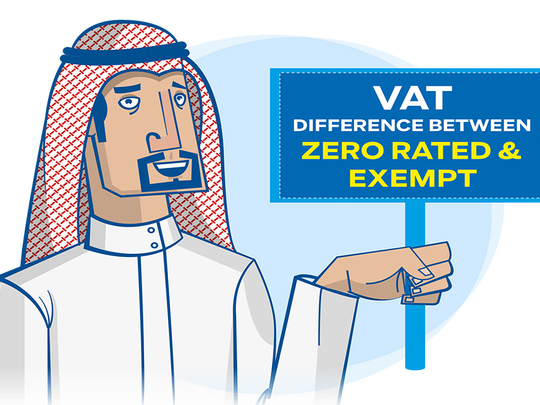
DUBAI: As far as which goods and services will not be taxed come January 2018, the only solid information currently available is from the Ministry of Finance.
The Federal Decree-Law No. 8 of 2017, released last week, outlines multiple aspects of how VAT will be implemented, the timeline for its implementation, how businesses must file their tax returns, and which goods and services will be exempt, or zero rated, come January 1.
The Decree-Law, posted to the UAE Ministry of Finance’s website, highlights some of the goods and services that are either exempt or zero rated, including public transport, exports to countries outside the Gulf Co-operation Council (GCC), commercial airlines, precious metals, the supply of crude and natural gas, and certain types of education and health care.
Many of these goods aren’t taxed because they provide beneficial services to society, whilst others avoid tax simply because they are too complicated, such as financial services.
Buildings feature heavily in the list of goods and services that are not taxed. For example, the first supply of residential buildings within three years of their completion, either through sale or lease in whole or in part, are zero rated.
The same goes for buildings that will be supplied for charity purposes.
Zero rated means that the tax rate on that good is zero per cent, and therefore the consumer will not have to pay any tax on it.
One of the complicating factors in deciphering what is, and isn’t, subject to VAT, is that in the Decree-Law, there is an Executive Regulation referenced over 60 times. This Executive Regulation is often referred to as providing more information on a particular point.
In the list of goods and supplies that will not be taxed, many items read very similarly to the following example: “The supply of … health care services [will be not be taxed] … according to what is specified in the Executive Regulation of this Decree-Law.”
The problem is, this Executive Regulation has not yet been released to the public, and as a result many of the exemptions listed are still unclear, as they refer to an unreleased document for further details, leading to much speculation.
Education has been the subject of dispute in recent days, as people argue whether or not all education is tax-free, or just government-funded education.
Much of this confusion should be cleared up when the government publishes its Executive Regulation, and provides more detail on what is, and isn’t exempt from tax.
In the UK, examples of goods that are exempt from VAT include: basic or staple food items, but not meals in restaurants or takeaway meals; books, newspapers and magazines; children’s clothing and shoes; sanitary protection such as pads and tampons; public transport fares; and the installation of energy-saving materials.










